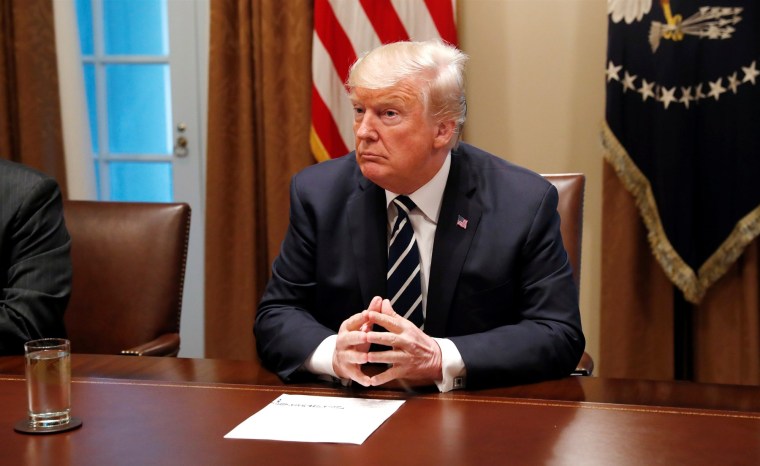About two weeks ago, apropos of nothing, Donald Trump published a tweet that read, "All levels of government and Law Enforcement are watching carefully for VOTER FRAUD, including during EARLY VOTING. Cheat at your own peril. Violators will be subject to maximum penalties, both civil and criminal!"
It seemed odd, to put it mildly, to see an American president try to intimidate voters in his own country, seemingly trying to discourage his national constituents from participating in elections. And yet, this morning, he did it again.
"Law Enforcement has been strongly notified to watch closely for any ILLEGAL VOTING which may take place in Tuesday's Election (or Early Voting). Anyone caught will be subject to the Maximum Criminal Penalties allowed by law. Thank you!"
I do love his use of phrases like "strongly notified." Some presidents may casually notify law enforcement, but not Donald J. Trump. He "strongly notifies" law enforcement -- which presumably means notifications that include randomly capitalized letters as a way of letting everyone know he means it.
All joking aside, presidential warnings like these are offensive, not just because "illegal voting" is ridiculously rare -- Trump is effectively issuing warnings to address a problem that doesn't exist -- and not just because voter-intimidation tactics are inherently undemocratic.
The other part of the equation is that we've seen efforts like these before, just not from elected American leaders.
Rachel had a segment on this two weeks ago that's well worth your time if you missed it, and it included a review of threatening billboards we saw in 2012, which popped up in low-income, predominantly African-American neighborhoods in Ohio and Wisconsin.
The billboards, paid for by a "private family foundation," targeted black people with a threatening message: those who commit voter fraud face a $10,000 fine and up to three-and-a-half years behind bars. The point, of course, was to raise the possibility in locals' minds that if they turned up to vote, there could be legal consequences.
Before long, there was a public outcry and the company that owned the billboards pulled the ads ahead of Election Day.
Six years later, the message seems to have made a comeback -- but instead of anonymous billboards, Americans now have a president who's making a similar pitch via social media, threatening criminal penalties.
